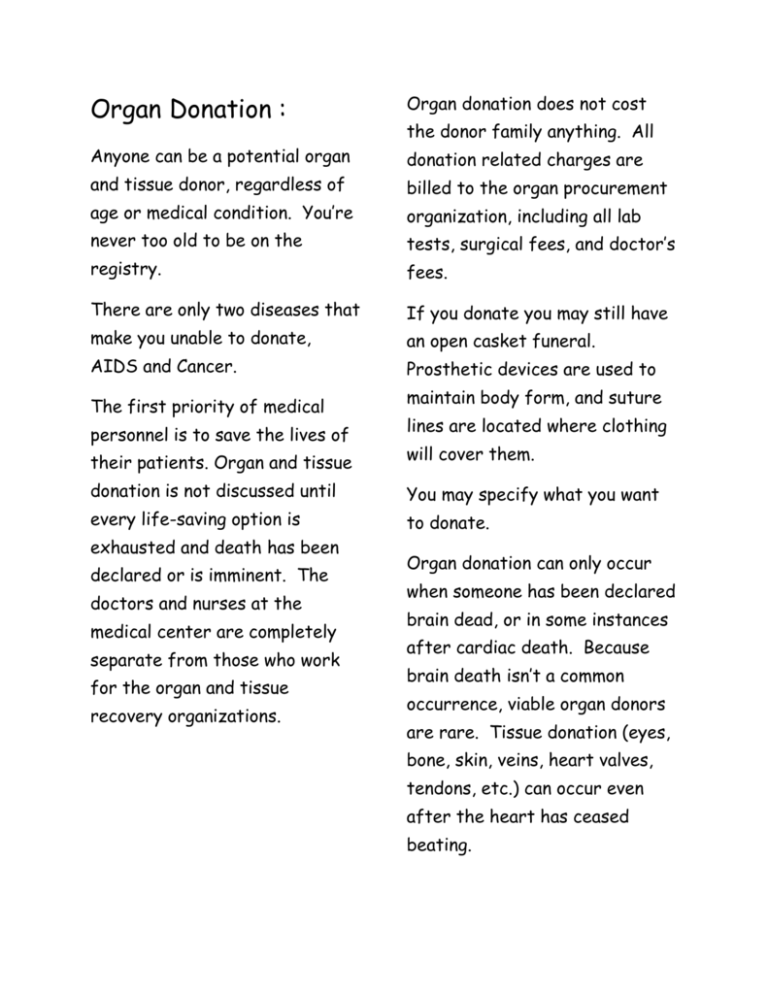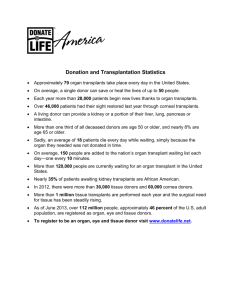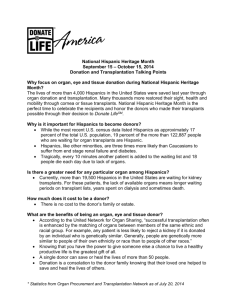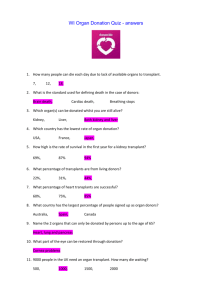Organ Donation : Anyone can be a potential organ and tissue donor
advertisement

Organ Donation : Organ donation does not cost Anyone can be a potential organ donation related charges are and tissue donor, regardless of age or medical condition. You’re never too old to be on the the donor family anything. All billed to the organ procurement organization, including all lab tests, surgical fees, and doctor’s registry. fees. There are only two diseases that If you donate you may still have make you unable to donate, an open casket funeral. AIDS and Cancer. Prosthetic devices are used to The first priority of medical personnel is to save the lives of their patients. Organ and tissue maintain body form, and suture lines are located where clothing will cover them. donation is not discussed until You may specify what you want every life-saving option is to donate. exhausted and death has been declared or is imminent. The doctors and nurses at the medical center are completely separate from those who work for the organ and tissue recovery organizations. Organ donation can only occur when someone has been declared brain dead, or in some instances after cardiac death. Because brain death isn’t a common occurrence, viable organ donors are rare. Tissue donation (eyes, bone, skin, veins, heart valves, tendons, etc.) can occur even after the heart has ceased beating. When a donated organ becomes donation and improve dozens available, a list is generated more through tissue donation, from UNOS which ranks the importance of becoming a recipients based on severity of donor is much more apparent. illness, length of time on the waiting list, size compatibility of organs, blood type, tissue types, and proximity to donor. Things such as income, occupation, gender, and race are not All major religions support organ donation and consider it an act of charity. You can look up a list of statements from major religions regarding donation . considered when an organ is You may be a living donor, placed. donations that occur while you There are still so many people needing organ transplants because only about 2% of deaths meet brain death criteria and have the potential to become organ donors. Many of the people waiting for transplants are children, and few adult donors can donate to children. The number of organs donated hasn’t been able to keep pace with the need and thousands of people die every year on the waiting list. When you consider that one organ donor can save up to nine lives through organ are alive. This includes blood donation, donating bone marrow, a kidney, or part of your liver.




